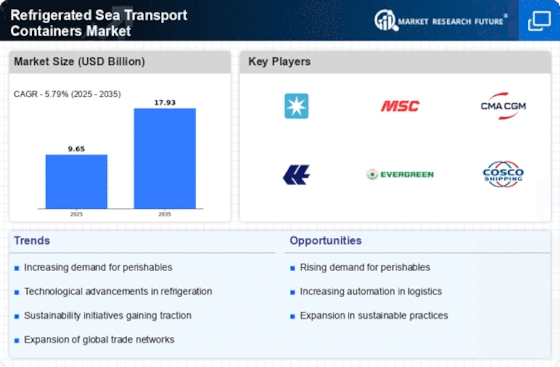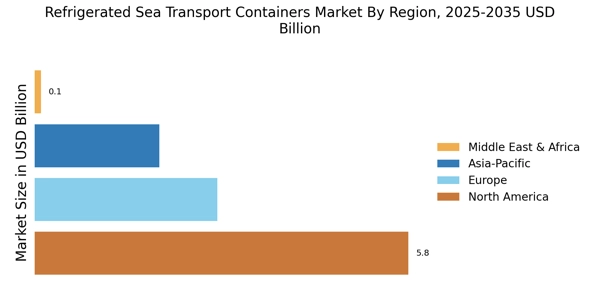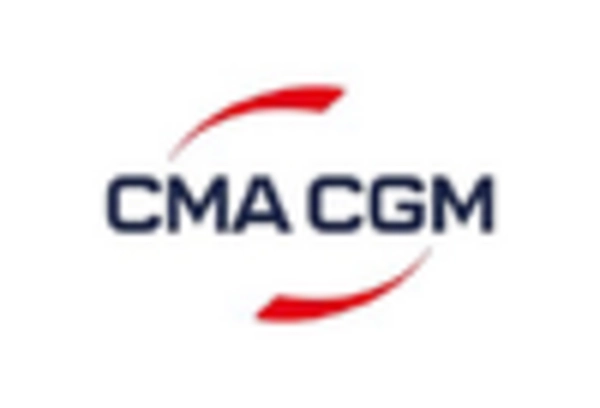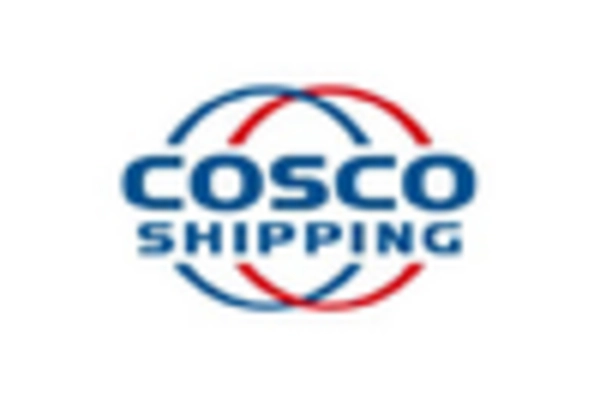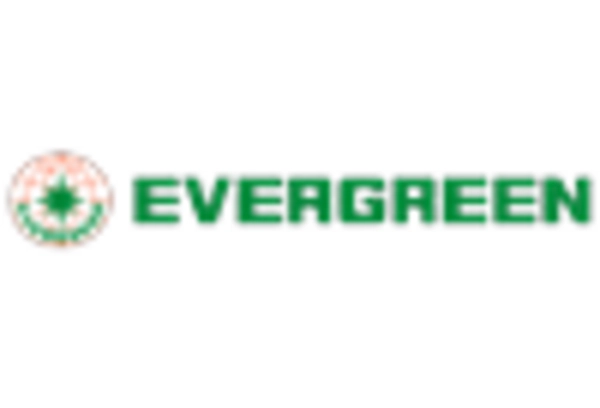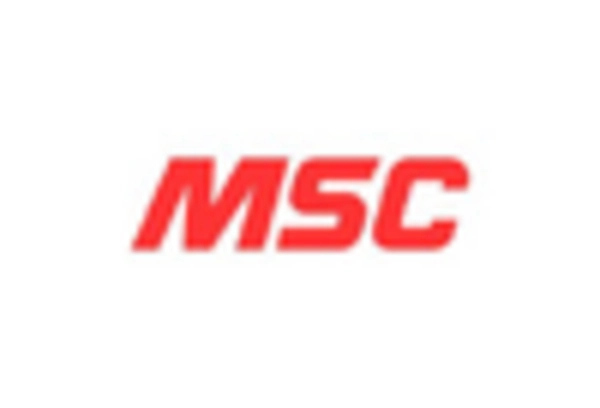Rising Demand for Perishable Goods
The increasing consumption of perishable goods, such as fruits, vegetables, dairy products, and seafood, drives the Refrigerated Sea Transport Containers Market. As consumers become more health-conscious, the demand for fresh and organic products rises. This trend is reflected in the market, where the demand for refrigerated containers is projected to grow at a compound annual growth rate of approximately 5.5% over the next few years. Retailers and distributors are increasingly relying on refrigerated sea transport to maintain the quality and safety of these products during transit. Consequently, the need for efficient and reliable refrigerated transport solutions is paramount, leading to innovations in container technology and logistics management. The Refrigerated Sea Transport Containers Market is thus positioned to benefit from this growing demand, as stakeholders seek to optimize their supply chains and meet consumer expectations.
Technological Innovations in Refrigeration
Technological advancements in refrigeration technology significantly impact the Refrigerated Sea Transport Containers Market. Innovations such as energy-efficient cooling systems, IoT-enabled monitoring, and advanced insulation materials enhance the performance and reliability of refrigerated containers. These technologies not only improve temperature control but also reduce energy consumption, aligning with sustainability goals. The integration of smart technologies allows for real-time tracking and monitoring of cargo conditions, ensuring that perishable goods are transported under optimal conditions. As a result, stakeholders in the market are increasingly investing in modernized refrigerated containers to enhance operational efficiency and reduce spoilage rates. The Refrigerated Sea Transport Containers Market is thus witnessing a shift towards more sophisticated and technologically advanced solutions, which are likely to become a standard in the industry.
Growth in International Trade and Logistics
The growth in international trade and logistics is a key driver of the Refrigerated Sea Transport Containers Market. As countries continue to engage in cross-border trade, the demand for efficient and reliable transport solutions for perishable goods increases. The expansion of trade agreements and the reduction of tariffs facilitate the movement of goods across borders, further boosting the need for refrigerated transport. According to trade statistics, the volume of refrigerated cargo transported by sea is expected to rise significantly in the coming years, driven by the increasing globalization of supply chains. This trend presents opportunities for stakeholders in the Refrigerated Sea Transport Containers Market to enhance their service offerings and invest in advanced container technologies. As international trade continues to flourish, the market for refrigerated containers is poised for substantial growth.
Regulatory Compliance and Food Safety Standards
Stringent regulatory compliance and food safety standards are pivotal drivers of the Refrigerated Sea Transport Containers Market. Governments and international organizations have established guidelines to ensure the safe transport of perishable goods, necessitating the use of refrigerated containers that meet these standards. Compliance with regulations such as the Food Safety Modernization Act (FSMA) and the International Maritime Organization (IMO) guidelines is crucial for businesses involved in the transport of food products. As a result, companies are increasingly investing in refrigerated transport solutions that adhere to these regulations, ensuring the safety and quality of their products during transit. This focus on compliance not only protects consumers but also enhances the reputation of businesses in the market. The Refrigerated Sea Transport Containers Market is thus likely to see sustained growth as stakeholders prioritize adherence to food safety standards.
Expansion of E-commerce and Online Grocery Delivery
The rapid expansion of e-commerce and online grocery delivery services is reshaping the Refrigerated Sea Transport Containers Market. As consumers increasingly prefer the convenience of online shopping, retailers are adapting their logistics to meet this demand. This shift necessitates reliable refrigerated transport solutions to ensure that perishable items reach consumers in optimal condition. The market for refrigerated containers is expected to grow as e-commerce platforms expand their offerings to include a wider range of perishable goods. According to recent estimates, the online grocery market is projected to reach a valuation of over 200 billion by 2025, further driving the need for efficient refrigerated transport solutions. Consequently, the Refrigerated Sea Transport Containers Market is likely to experience significant growth as it aligns with the evolving landscape of consumer preferences and shopping habits.


